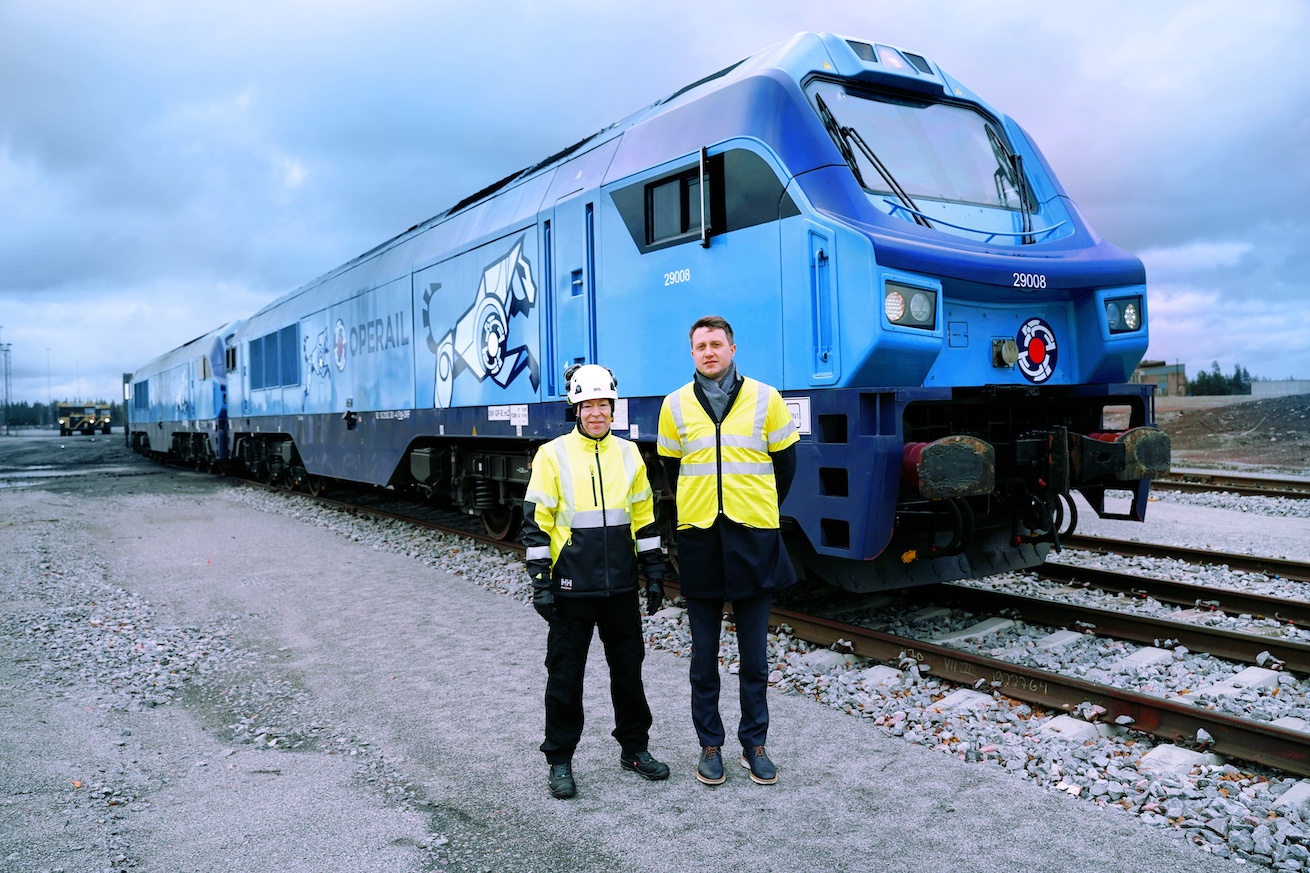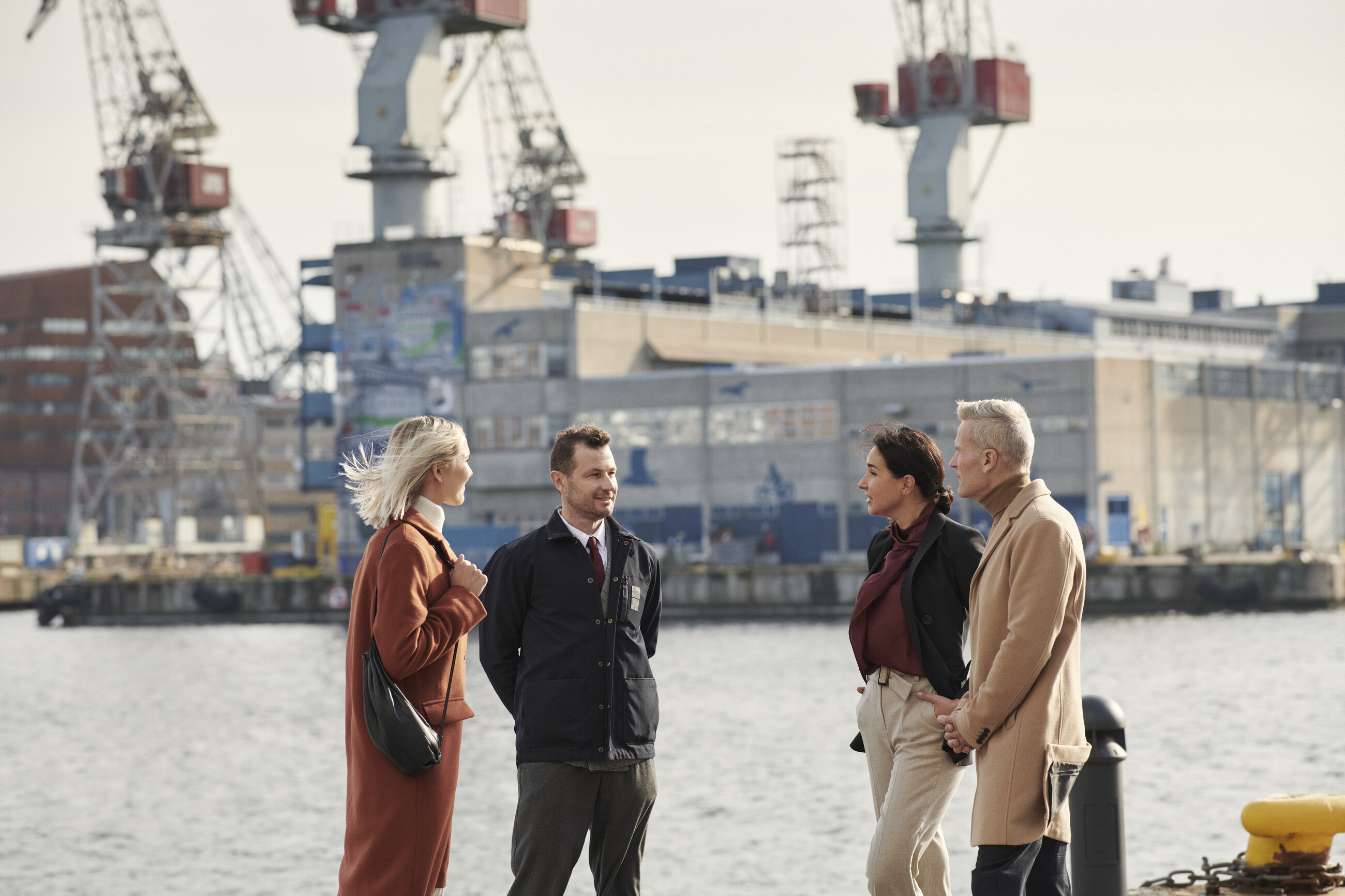Estonia’s dynamic and digital business environment demands a ground-breaking approach from a bank
Lisää aiheesta
The Estonian economy has taken a giant leap forward in the past decade. This period of dynamism and digitalisation has given birth to numerous business success stories. OP has been part of it.
On 1 April the Estonian branch of OP Corporate Bank plc celebrated its 10th anniversary. The past decade has been an interesting time for the national economy and OP’s Estonian branch has been involved in many important projects.
State-owned Operail Group is the country’s largest freight carrier and one of OP branch’s longest corporate customers. Its Chief Financial Officer Paul Lukka points out that Operail has significant financing needs because its investments in recent years have exceeded 100 million euros.
“OP Corporate Bank Estonia has been a good partner for us and supported our growth,” he says.
As Operail expands its foreign operations, it requires banking services with a more international reach. Lukka notes that in future his company will also be working with OP in Finland, where it commenced rail transport operations in 2020.
“We have ambitious expansion plans and so finance is crucial,” he says, adding that the company expects seamless, fully digital and integrated banking services.
OP supporting growth of major corporations, many with roots in Finland
Hannes Kaadu has been OP’s Country Manager at the Estonian branch since 2015 and is also well informed about the bank’s earlier period.
“About 80 percent of our loan portfolio consists specifically of the country’s biggest companies,” he points out.
Among many of the largest privately owned multisector companies, OP is also the main source of finance. OP works with almost all of Estonia’s largest corporations, Kaadu points out.
In addition to Estonian corporations, OP Corporate Bank in Estonia has many Finnish corporate customers with local business operations. Numerically, his branch has as many Finnish customers as Estonian ones, Kaadu says. There are approximately 6 000 companies in Estonia that have significant Finnish shareholdings or are subsidiaries of Finnish companies.
“Finnish companies tend to use our payment traffic services while local companies make more comprehensive use of our financing services.”
Property developer needs financier
Another strong local player and a customer of OP’s Estonian branch is Kaamos Group, known as an engine of the real estate sector. Its CFO Mait Mengel says that, in a capital-intensive sector like real estate, a good banking relationship is particularly important.
“We began working with OP Tallinn in 2015, when we were starting to plan our Avala business quarter.”
Kaamos has subsequently built more business campuses and other projects, including Tallinn’s largest solar energy park.
Mengel believes that a flexible banking relationship based on trust is the be-all and end-all for a player like Kaamos Group.
“OP has always been on the same side of the table with us in our various projects, and tried to find the best solution for both parties.”
Digital in the national DNA
In the past decade, Estonia’s corporate landscape has been transformed. Digitalisation has given a small country wings and powered the world conquests of its innovative start-ups. Nor should it be forgotten that the euro is also celebrating its 10th anniversary here; Estonia began using it at the start of 2011.
Paul Lukka of Operail believes that the Estonian economy is surging strongly. It has the most unicorns per head of population and the future looks promising for new world conquests, too.
“In the international arena, Estonia has developed as a higher value-added product producer and service provider,” he says.
Mait Mengel at Kaamos agrees. In the past ten years economic indicators have gone up and the income level of citizens has actually doubled.
“A lot of this is due to the development work of e-government and a strong IT sector. An advanced digital society is one element in Estonia’s competitiveness.”

The factory default is digital
Because Estonia is a digital state in many respects, Hannes Kaadu says that banks have to be at the forefront of digital advances.
“For example, the spread of digital contracts and digital signatures means that just about everything can now be handled remotely with speed and efficiency. In fact, it’s starting to be the default setting.”
When Estonian companies dream, develop and expand, OP Tallinn supports them every step of the way.
“Our investment in the customer experience has produced remarkably good results. In five years, the bank’s result has risen by a factor of five.” Kaadu attributes it to his team. OP’s Estonian office employs 35 professionals who grasp the importance of customer service and the spirit of enterprise.
“We have a good team that works well together. There has been very little staff turnover.”
Looking to the future
What about the next 10 years?
“We have an established market position in our own customer segment. Our operations in Estonia are focussed on deepening current relationships and developing services. And we are always on the lookout for new partners,” Kaadu says.
He adds that banking regulation has increased greatly in recent years.
“The higher volume of manual work is the biggest challenge we face at present. It is an incentive to develop IT solutions. A digital leap is a key focal point in our strategy for the next five years, confirmed last December.”
Interest in green finance
Kaadu believes that arranging finance will continue to be the main part of corporate banking in the years ahead, but its forms will change.
For example, there is growing interest in green finance, and pricing will be tied to ESG objectives in future. There is already a strong focus on sustainable development and responsibility, he says.
“This is one of the most interesting trends at the present time. Banks have a good opportunity – and because of their position, even a responsibility – to set an example and promote the right social development.”
